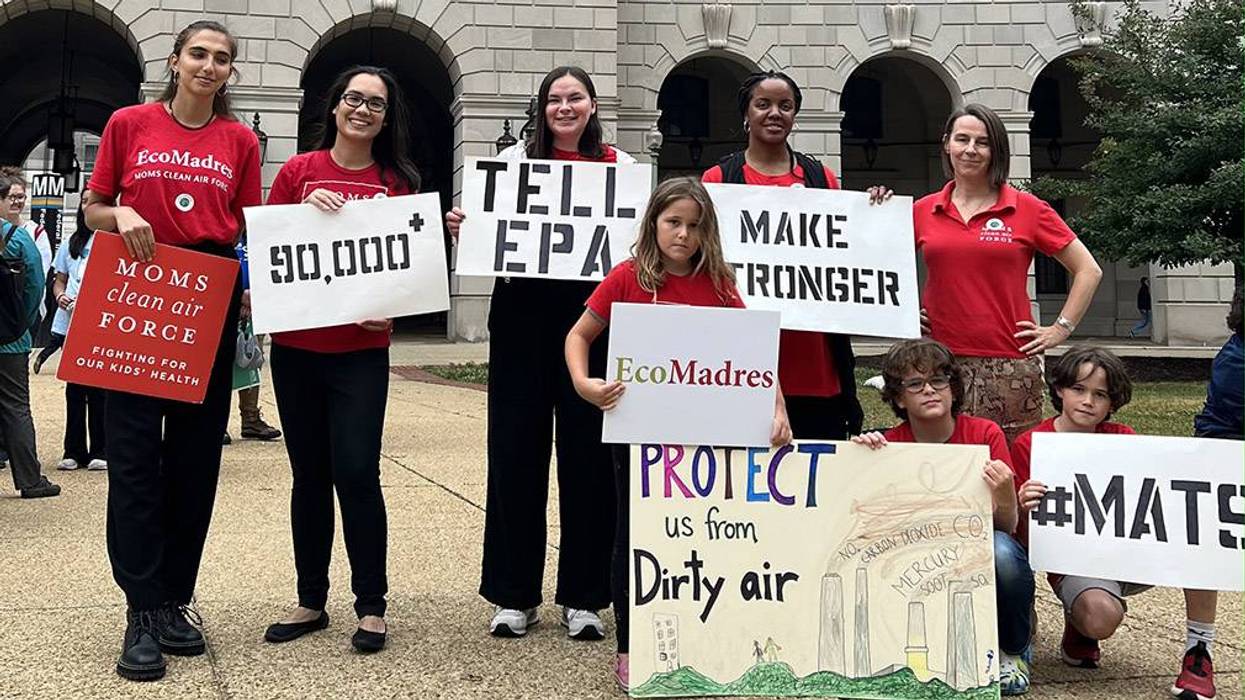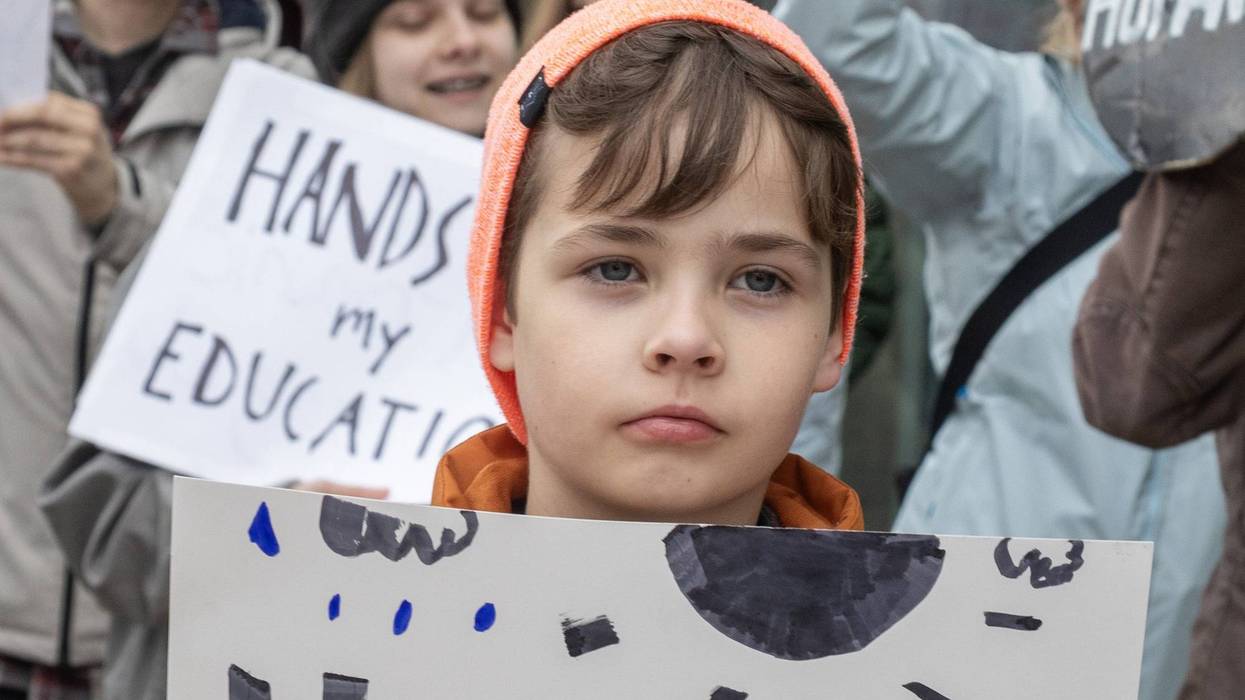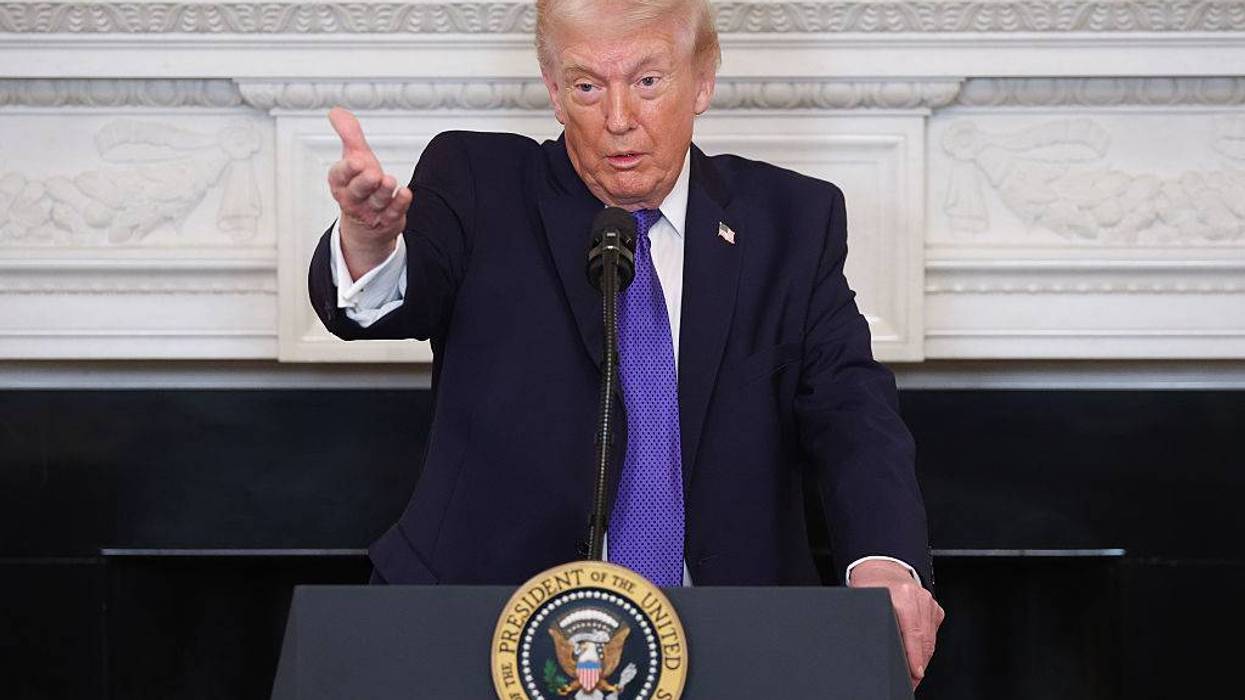Last month, publishing giant McGraw-Hill Education withdrew and destroyed copies of a US college level textbook because of complaints from supporters of Israel over a series of maps showing loss of Palestinian land from 1946, shortly before Israel was established, to 2000.
In response to this shocking and outrageous act of censorship of the Palestinian narrative from US schoolbooks, dozens of respected Palestinian, Israeli, and American academics have signed onto the enclosed open letter calling on McGraw-Hill Education to reverse its decision. Signatories include Rashid Khalidi, Noura Erakat, Noam Chomsky, Judith Butler, Sarah Schulman, Avi Shlaim, Ilan Pappe, and Angela Davis.
Academics Urge McGraw-Hill Education to Reverse Decision to Destroy Textbook
We, the undersigned, urge McGraw-Hill Education to reverse its recent decision to withdraw and destroy the US college level textbook, "Global Politics: Engaging a Complex World", which was made following complaints about a series of maps showing loss of Palestinian land from 1946 to 2000.
This blatant act of censorship, in response to complaints from those who seek to suppress a free exchange of knowledge and ideas about Israel and Palestine, is shocking and unacceptable.
The maps in question are historically accurate and vividly illustrate Israel's dispossession of the Palestinian people and appropriation of their land, which is why the Israeli government and its supporters wish to suppress them. If there were in fact any minor errors with the maps they should have been corrected rather than removed altogether. Last year, in a similar act of censorship, the cable news network MSNBC apologized for airing a similar series of maps and retracted them.
It is imperative that students be able to visualize history, including through the use of maps, in order to learn how to analyze and understand it. Further, it is essential that faculty and students have access to educational materials that speak to the dispossession Palestinians have experienced, and continue to experience today. We cannot have a truly comprehensive understanding of Palestine or Israel without this information.
We urge McGraw-Hill Education to reverse its decision and reinstate the maps and textbooks in question.
Signed,
Nadia Abu-El-Haj, Professor at Barnard College and Columbia University
Rebecca Alpert, Professor of Religion, Temple University
Sofya Aptekar, Assistant Professor of Sociology, University of Massachusetts Boston
Sa'ed Atshan, Visiting Assistant Professor of Peace and Conflict Studies, Swarthmore College
Elsa Auerbach, Professor Emerita, University of Massachusetts Boston
Daniel Boyarin, Hermann P. and Sophia Taubman Professor of Talmudic Culture, Departments of Near Eastern Studies and Rhetoric, University of California at Berkeley
George Bisharat, Emeritus Professor of Law, UC Hastings College of the Law, San Francisco
Judith Butler, Maxine Elliot Professor in the Department of Comparative Literature and the Program of Critical Theory at the University of California, Berkeley
Noam Chomsky, Institute Professor & Professor of Linguistics (Emeritus), Massachusetts Institute of Technology
Omar Dajani, Professor of Law at the University of the Pacific's McGeorge School of Law
Angela Davis, Author and activist
Estelle Disch, Ph.D., Professor Emerita of Sociology, University of Massachusetts Boston
Lisa Duggan, Professor of Social & Cultural Analysis, New York University
Nada Elia, Program Manager, Global Cultures Program, Northwest Language Academy
Noura Erakat, Assistant Professor at George Mason University
Andres Fabian Henao Castro, Political Science Department, University of Massachusetts Boston
Margaret Ferguson, Distinguished Professor of English at the University of California, Davis
Katherine Franke, Sulzbacher Professor of Law, Director of the Open University Project, and member of the steering committee of the Center for Palestine Studies at Columbia University
Marilyn Frankenstein, Professor of Media and Society, University of Massachusetts Boston
Randa Jarrar, President of Radius of Arab American Writers
Rashid Khalidi, Edward Said Professor of Modern Arab Studies, Columbia University
Martha London, University of Massachusetts Boston
David Lloyd, Distinguished Professor of English, University of California, Riverside
Saree Makdisi, Professor of English and Comparative Literature, UCLA
Ussama S. Makdisi, Professor of History and Arab-American Educational Foundation Chair of Arab Studies, Rice University
Bill V. Mullen, Professor of American Studies, Purdue University
Nadine Naber, Associate Professor, Gender & Women's Studies and Asian American Studies, University of Illinois at Chicago
David Palumbo-Liu, Louise Hewlett Nixon Professor, and Professor of Comparative Literature, Stanford University
Ilan Pappe, Professor with the College of Social Sciences and International Studies at the University of Exeter, director of the university's European Centre for Palestine Studies, and co-director of the Exeter Centre for Ethno-Political Studies
Rachel Rubin, University of Massachusetts Boston
Sarah Schulman, Distinguished Professor of the Humanities, City University of New York, College of Staten Island
Avi Shlaim, Emeritus Professor of International Relations, St. Antony's College, Oxford
C. Heike Schotten, Associate Professor, Department of Political Science, University of Massachusetts Boston
Jack Shaheen, Distinguished Visiting Scholar at New York University's Asian/Pacific/American Institute and The Hagop Kevorkian Center for Near Eastern Studies
Simona Sharoni, Professor of Gender and Women's Studies at the State University of New York at Plattsburgh
Barry Trachtenberg, Director, Judaic Studies Program, University at Albany - SUNY
Judith E. Tucker, Professor of History, Georgetown University





